Top Driveway Cleaning Methods
Your driveway is one of the most visible parts of your property and over time it takes a beating from vehicles, weather and foot traffic. Keeping your concrete driveway clean is important for both looks and safety. Two of the most common ways to do this are pressure washing and chemical cleaning. In this guide we’ll look at both methods, the pros and cons so you can decide what’s best for you.
Why Driveway Cleaning is Important
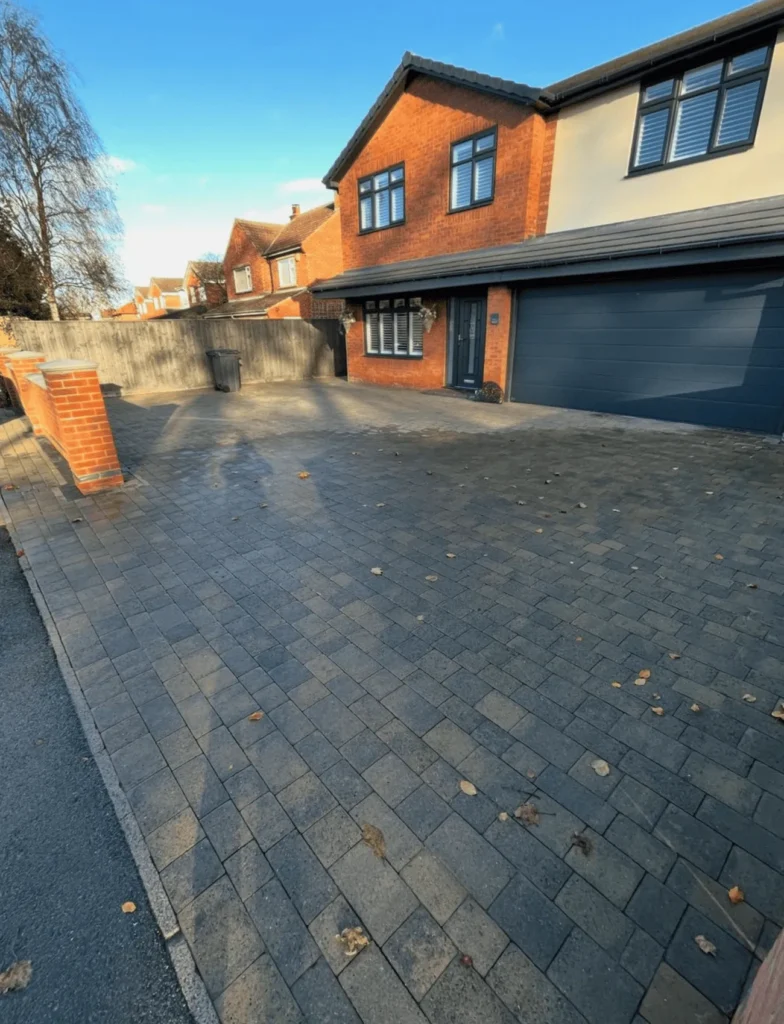
Driveway cleaning not only looks good but also prevents the buildup of nasty substances like oil, dirt and organic matter. These, if left unchecked, can cause long-term damage to your concrete surface. Tough stains like oil stains, grease stains and rust stains are hard to remove without the right techniques and tools, so you must choose the right cleaning method. Algae and mould can also make the surface slippery, and anyone walking on the driveway can get damaged.
Pressure Washing
Pressure washing is one of the most popular ways to clean outdoor surfaces including concrete driveways, patio furniture and garage floors. A pressure washer uses a high pressure water spray to blast away dirt, debris and stubborn stains that build up over time.
How Pressure Washing Works
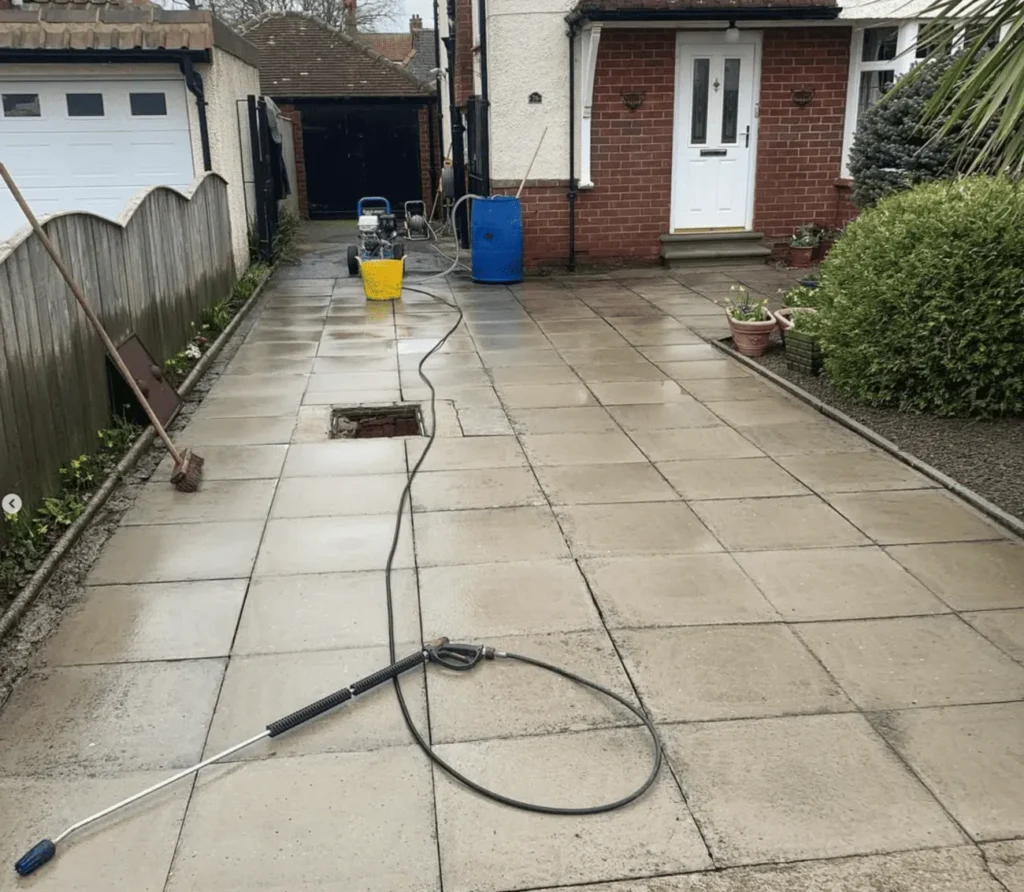
Pressure washing uses a high pressure water stream to blast away dirt and grime. The water pressure can be adjusted to different pressure levels depending on the surface being cleaned. For example a higher setting might be used on concrete surfaces to clean oil stains while lower settings are used for delicate surfaces like wood siding or asphalt shingles.
Benefits
- Highly Effective on Stubborn Stains: Pressure washers are great at removing grease stains, oil stains and organic matter like algae and mildew from concrete surfaces. Perfect for regular cleaning and maintenance of a clean surface.
- Eco Friendly: Since pressure washing uses mainly clean water and high pressure water it eliminates the need for harsh chemicals making it an eco friendly option.
- Versatile: A pressure washer can be used on a variety of surfaces, including concrete driveways, brick walls and outdoor furniture. By adjusting the pressure, you can clean delicate surfaces without causing damage.
- Fast and Efficient: The speed and effectiveness of high pressure cleaning makes it a time saver for business owners and homeowners alike. Using a surface cleaner can also speed up the cleaning process by covering larger areas.
Drawbacks of Pressure Washing
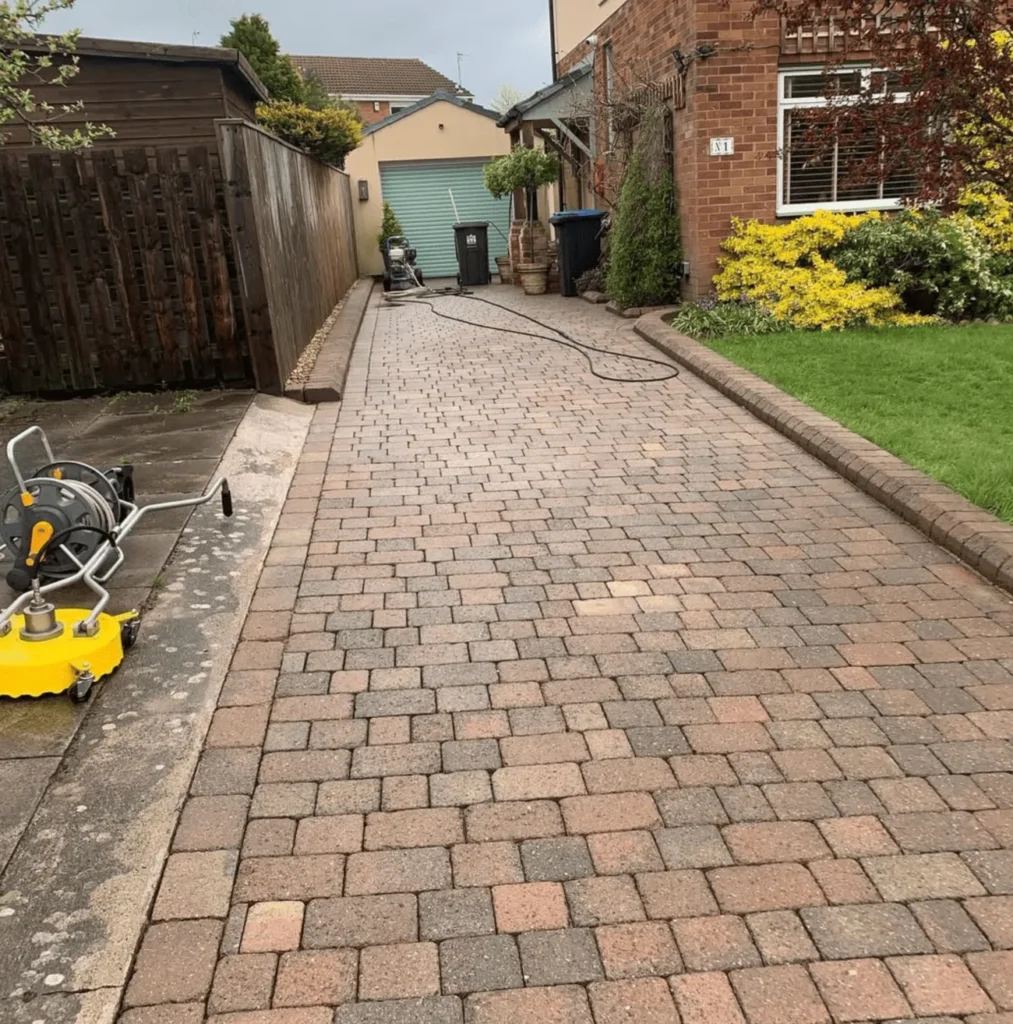
- Damage: Using a pressure washer incorrectly can damage surfaces, especially vinyl siding, wooden decks or older cracked concrete surfaces. Too much pressure can cause water to penetrate and weaken the surface.
- Water Usage: High pressure washing uses a lot of water. If you live in an area with water restrictions this may not be the best option.
Choosing the Right Pressure Washer
There are different types of pressure washers, from hot water power washers to soft washing for delicate surfaces. For stubborn stains on concrete surfaces a high pressure water stream is usually the way to go. Also using the right nozzles and pressure levels is key to getting the best results without damaging anything. A 25 degree nozzle is a popular choice for concrete cleaning because it balances power and coverage.
Chemical Cleaning
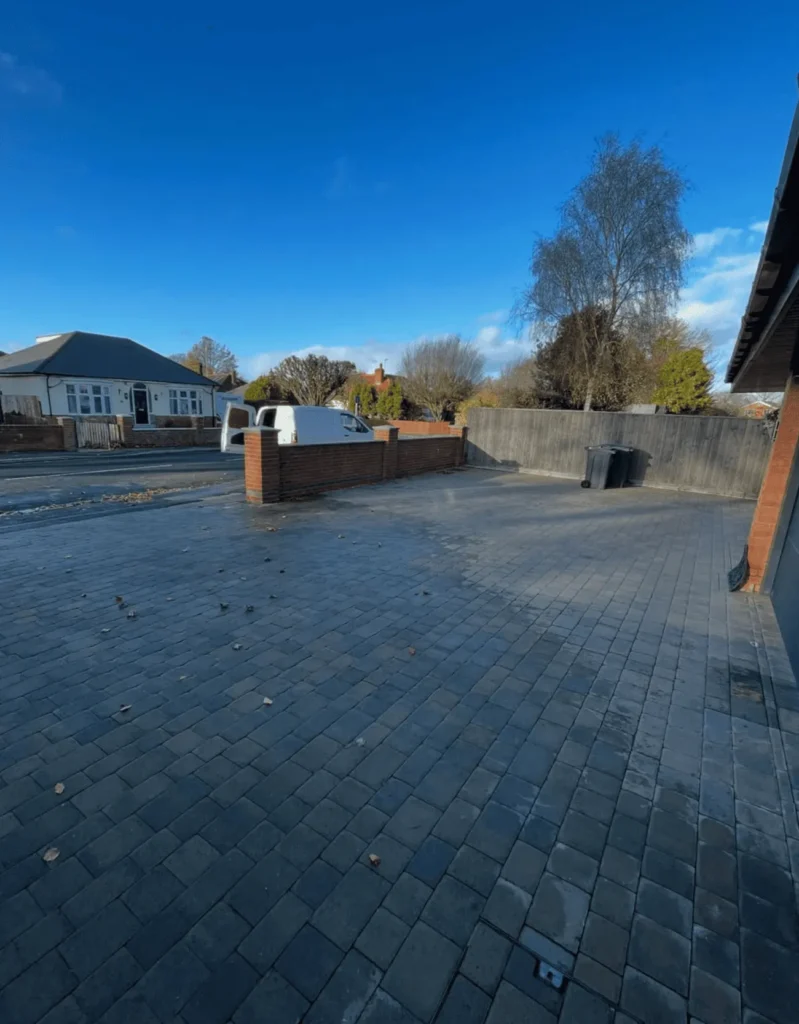
Chemical cleaning involves applying cleaning solutions or detergents that break down tough stains and dissolve contaminants. It’s good for stubborn stains that don’t respond to pressure washing alone, like oil-based stains or rust stains.
How Chemical Cleaning Works
Chemical cleaning uses specialized solutions formulated to target specific contaminants. These cleaning solutions can be biodegradable or harsh depending on the type of stain and surface. The solution is applied and left to sit for a period of time to break down the stains before being rinsed away with water or a garden hose.
Benefits of Chemical Cleaning
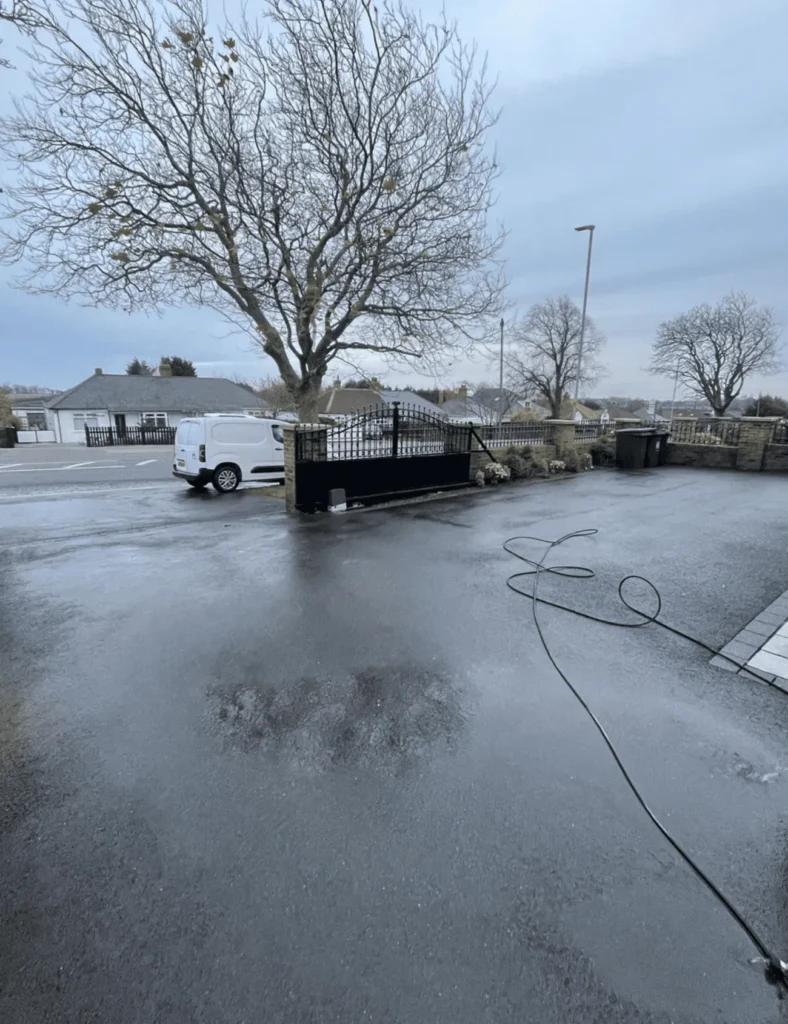
- Works on Tough Stains: Chemical cleaning is good for oil stains, grease stains and other tough stains that can’t be removed with high pressure water alone. The specialized solutions break down the molecules in the stain so it can be easily removed.
- Gentle on Delicate Surfaces: Since no high pressure water is involved, chemical cleaning is perfect for delicate surfaces like natural stone or vinyl siding where pressure washing could damage.
- Long Lasting Results: Some chemical cleaners leave behind a protective barrier that prevents future stains from sticking to the surface. This is especially good for concrete surfaces as it reduces the need for frequent cleaning.
Drawbacks of Chemical Cleaning
- Environmental Impact: Some harsh chemicals used in chemical cleaning can harm plants, animals and waterways. Always choose eco-friendly or biodegradable chemicals whenever possible to minimize the environmental impact.
- Residue and Surface Damage: If not rinsed properly, chemical cleaners can leave behind a residue that can cause concrete stains or make the surface slippery. In some cases, these residues can even cause discolouration over time.
Pressure Washing and Chemical Cleaning Combined
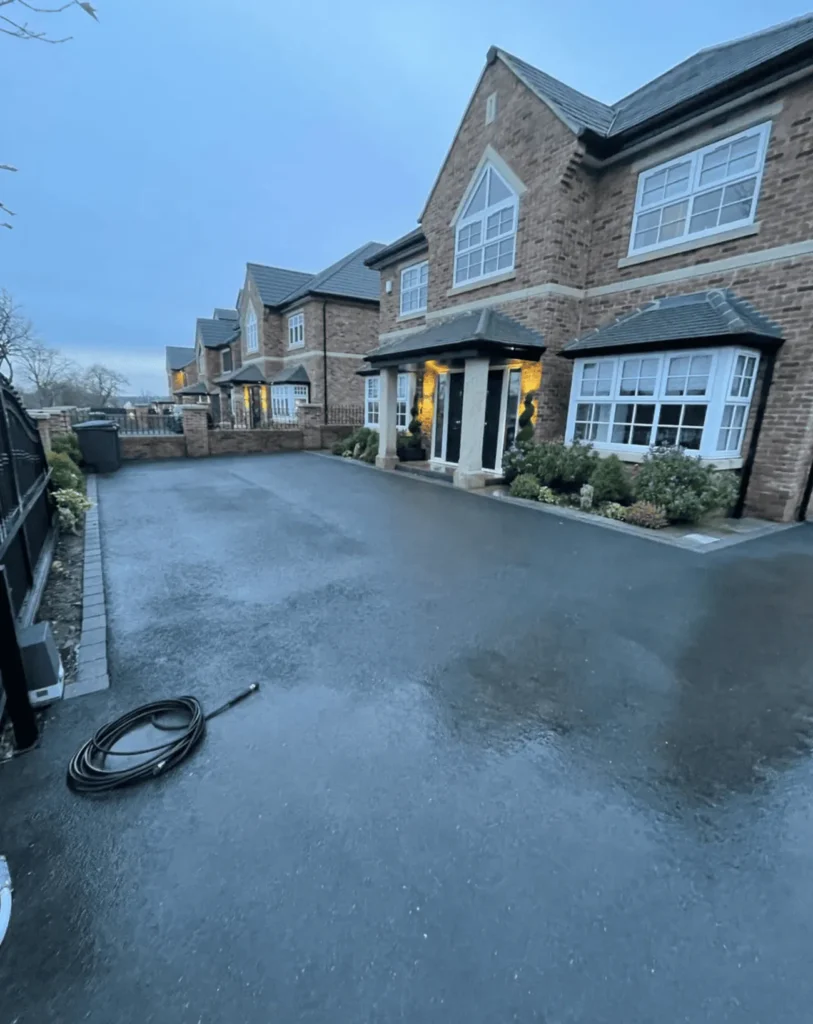
Often the best way to clean is to combine pressure washing and chemical cleaning. This two step process breaks down tough stains with cleaning solutions and then pressure washing removes the remaining dirt and debris leaving a clean surface behind.
For example professional services will often start with a soft wash using low pressure and specialized solutions to treat stains on delicate surfaces like wood panel siding or brick. Once the stains are treated a high pressure water spray is used to rinse the area and clean the entire surface without damage.
Professional Pressure Washing
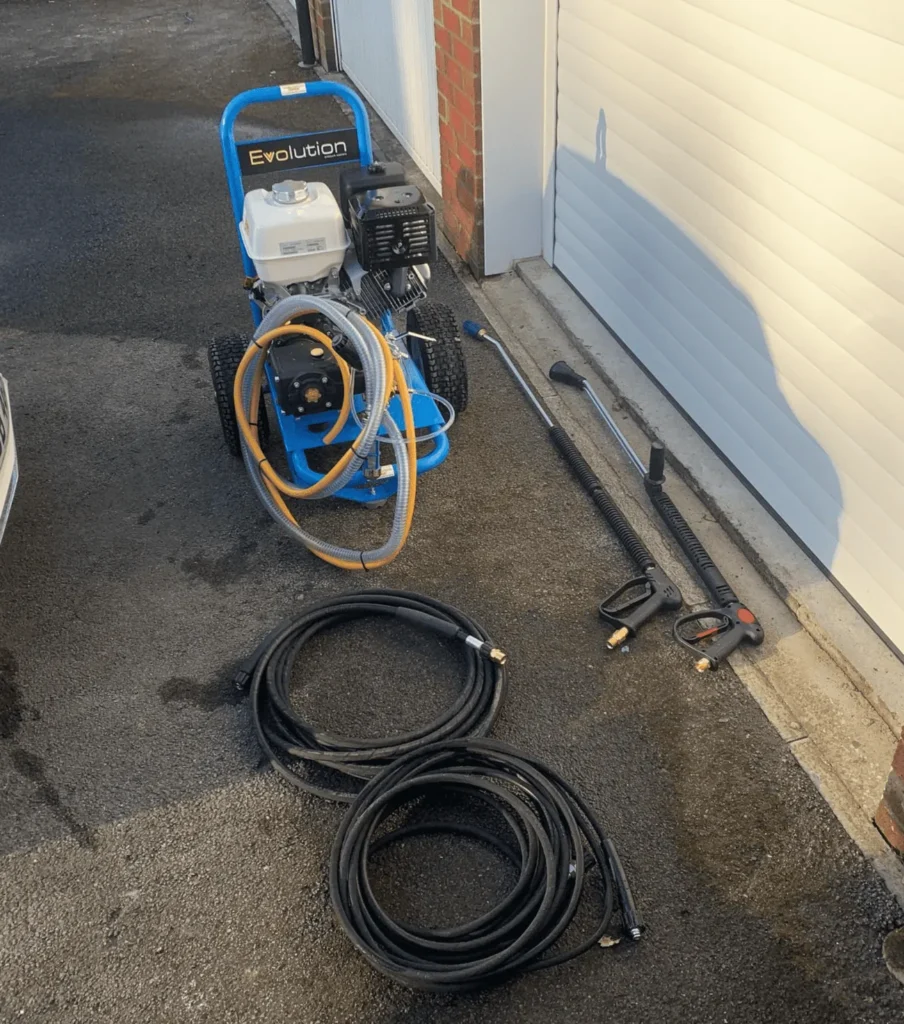
For homeowners and business owners who want to get it done right, hiring a professional pressure washing service is a good option. Pressure washing experts know the right techniques, pressure levels and cleaning solutions to use on different surfaces and types of stains. Professional services are especially useful for large cleaning projects like concrete driveways, garage floors and pool decks.
DIY vs Professional Pressure Washing
Many homeowners rent a pressure washer and do it themselves, but there are several advantages to hiring a professional:
- Safety: Professionals use the right equipment (safety glasses and protective gear) and are trained to avoid hazards (chemicals and water damage).
- Speed: Commercial-grade equipment gets the job done faster and better than most DIY attempts.
- Knowledge: Professionals know the difference between surfaces and cleaning techniques so fragile surfaces are treated correctly to avoid damage.
FAQ
Can pressure washing damage surfaces?
Yes, using too much pressure on surfaces like wood or brick can damage them. You need to adjust the pressure for the surface.
Are chemical cleaners safe for the environment?
Some chemical cleaners can be bad for the environment. Choose biodegradable cleaners and follow the instructions to minimize the impact.
How often should I clean my driveway?
Clean at least once or twice a year to prevent organic stains, dirt and debris from building up. Especially for concrete surfaces that get oil stains.
Can I use chemical cleaning and pressure washing together?
Yes, using both is often the best solution for tough stains and a deep clean on concrete and other hard surfaces.
Is it worth hiring a pressure washing company?
Yes, hiring a professional pressure washing service means proper technique, less risk of damage and longer lasting results.